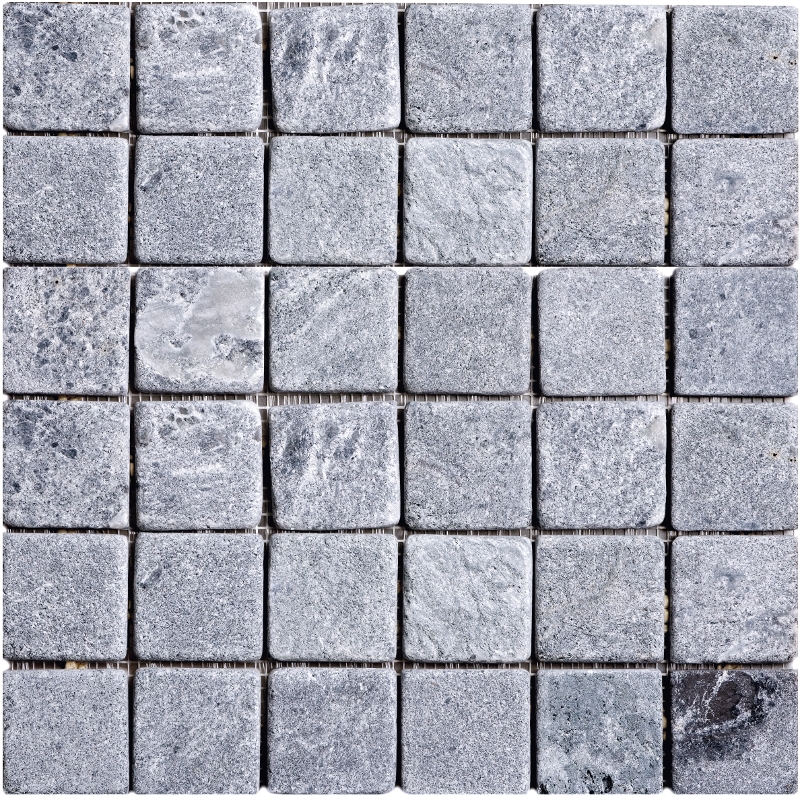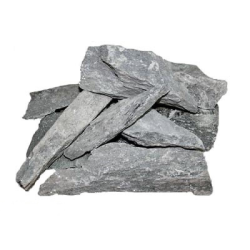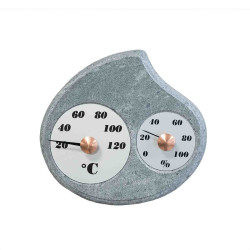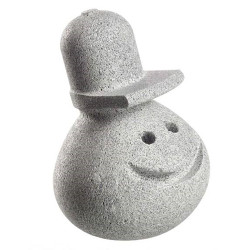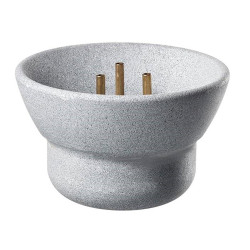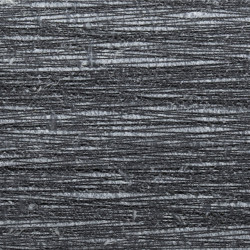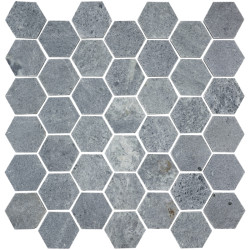The quality of the steam in the sauna depends on which stones we choose and how long the temperature regime of the steam room and the bathing procedure are maintained. When choosing sauna stones, it is important to pay attention to several aspects. The first important condition is that sauna stones should have a high density. The denser the stone, the greater the thermal volume and the longer the stone will retain heat. This is necessary for long-term heat preservation and one-time air heating. The second condition is the integrity of the stone structure, due to which water can enter the cracks. This property of stones determines their safe use and the absence of stone dust in the air of the steam room. Equally important is the heat capacity of stones - the ability to accumulate and retain heat for a long time.
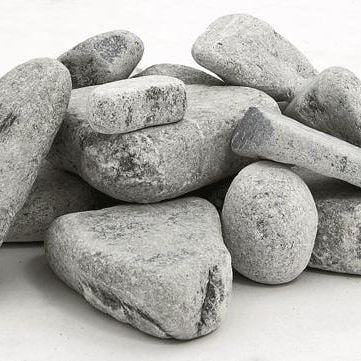
The stones used in the sauna must be clean and safe for health, it is best to use natural mineral materials. For example, diabase, peridotite, talcochlorite or jadeite. Diabase is the lightest and cheapest stone. Talcochlorite is the most suitable stone for baths and saunas, having the same wavelength of human thermal radiation. Therefore, talcochlorite provides gentle heat and soft steam. The stone is a beautiful light gray color. Jadeite is a semi-precious stone with high heat content, very durable, very beautiful and expensive. In ancient times, it was jadeite that was most valued for its healing abilities. It normalizes blood pressure, strengthens and increases the elasticity of blood vessels, treats the kidneys and urinary tract.
In this article, we will discuss more about the properties and benefits of soapstone (talcochlorite) when used in baths or saunas.
Soapstone and its properties
Soapstone has unique properties - it has high heat accumulation properties, is resistant to heating up to 1600º C, does not release harmful substances to the environment, and its field of application is very wide. Our ancestors used this stone in baths, but after noticing its exceptional properties, people started using soapstone for home stoves as well.
The largest deposits of soapstone rocks are located in Eastern Finland, Karelia (Russia) and the Urals. Industry began to use soapstone powder products, especially in the production of electrical insulating and refractory materials. Soapstone is widely used in the construction of blast furnaces in factories because this stone is relatively fire resistant.
Properties of soapstone:
• Natural soapstone has a soft heat radiation, which is why its use in the sauna is so pleasant. Soapstone has a positive effect on the human body: it helps treat colds and improves immunity. Various inflammations pass easily, and blood pressure decreases.
• Soapstone gives off heat slowly and over a long period of time. This is due to the fact that this stone is a poor conductor of heat (electricity as well, but this is not relevant for saunas). The most important thing is the thermal resistance, thermal power and thermal conductivity of any heater.
• A heater made using soapstone maintains a stable level of humidity and temperature in the bath or sauna.
• Soapstone is such a clean and environmentally friendly stone that it was used in Finland and the Baltic countries to make pans.
• The stone's chemical resistance is particularly high. This does not apply even to strong acids, only very strong alkalis can damage its surface.
• Soapstone is believed to have male Yang energy. According to this theory, the stone stimulates the brain, resulting in increased concentration, improved thinking and the elimination of depression.
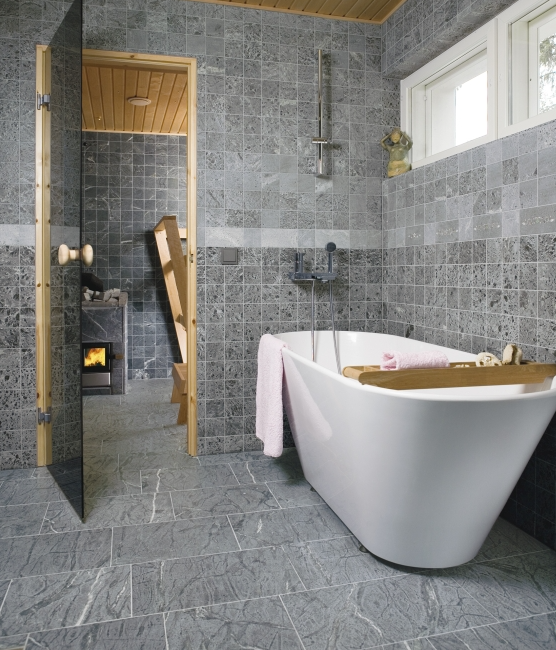 Chemical composition of soapstone:
Chemical composition of soapstone:
• Talc 40%-50%;
• Magnesite 40%-50%;
• Chlorite 5%-8%.
Technical characteristics of soapstone:
• Volumetric weight 2980 kg/m³;
• Melting point 1630-1640° С;
• Specific heat capacity 0.98 Kj/Kg° C;
• Thermal conductivity 6 W/MK.
Soapstone and its positive properties:
• natural material and has more heat;
• resistant to temperature changes;
• as a finishing material decorates the sauna;
• soapstone does not absorb moisture;
• the material is non-slip and pleasant to walk with bare feet;
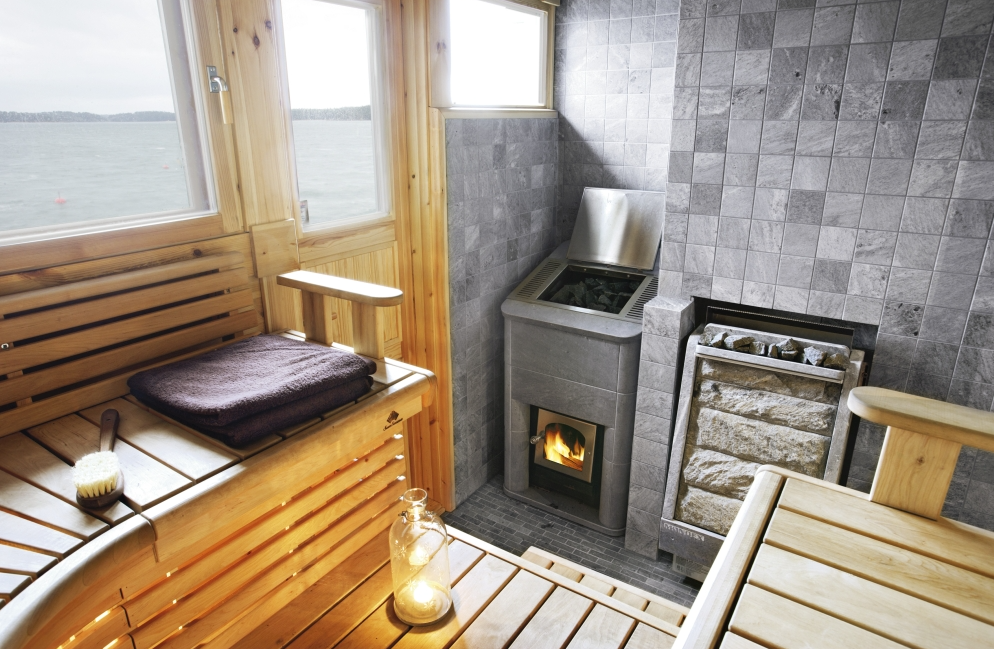 • soapstone creates soft steam;
• soapstone creates soft steam;
• soapstone is highly textured;
• stone goes well with wood;
• shows a unique interior design;
• soapstone is loved by sauna lovers and popular in the market;
• considering its properties, soapstone is ideal for Russian and steam baths;
• no heavy infrared rays;
• soapstone is a chemically neutral substance;
• heated has healing properties;
• increases sound insulation.
Soapstone is a material that has passed all necessary scientific and practical tests and is recognized as the best of natural materials used at temperatures up to +1200° C in its cycle mode. Due to its ease of processing, durability and high thermal properties, soapstone is an excellent material for buildings and heaters with thermal stability. Given the rare properties of this material, soapstone is used not only for the manufacture of heaters and fireplaces. In the Baltic countries in the 1980s, this stone was widely used for the production of warm floors. Using soapstone, you can create a unique atmosphere in the sauna. Soapstone can be used not only in the sauna, it also looks impressive as a decoration in the lounge.

